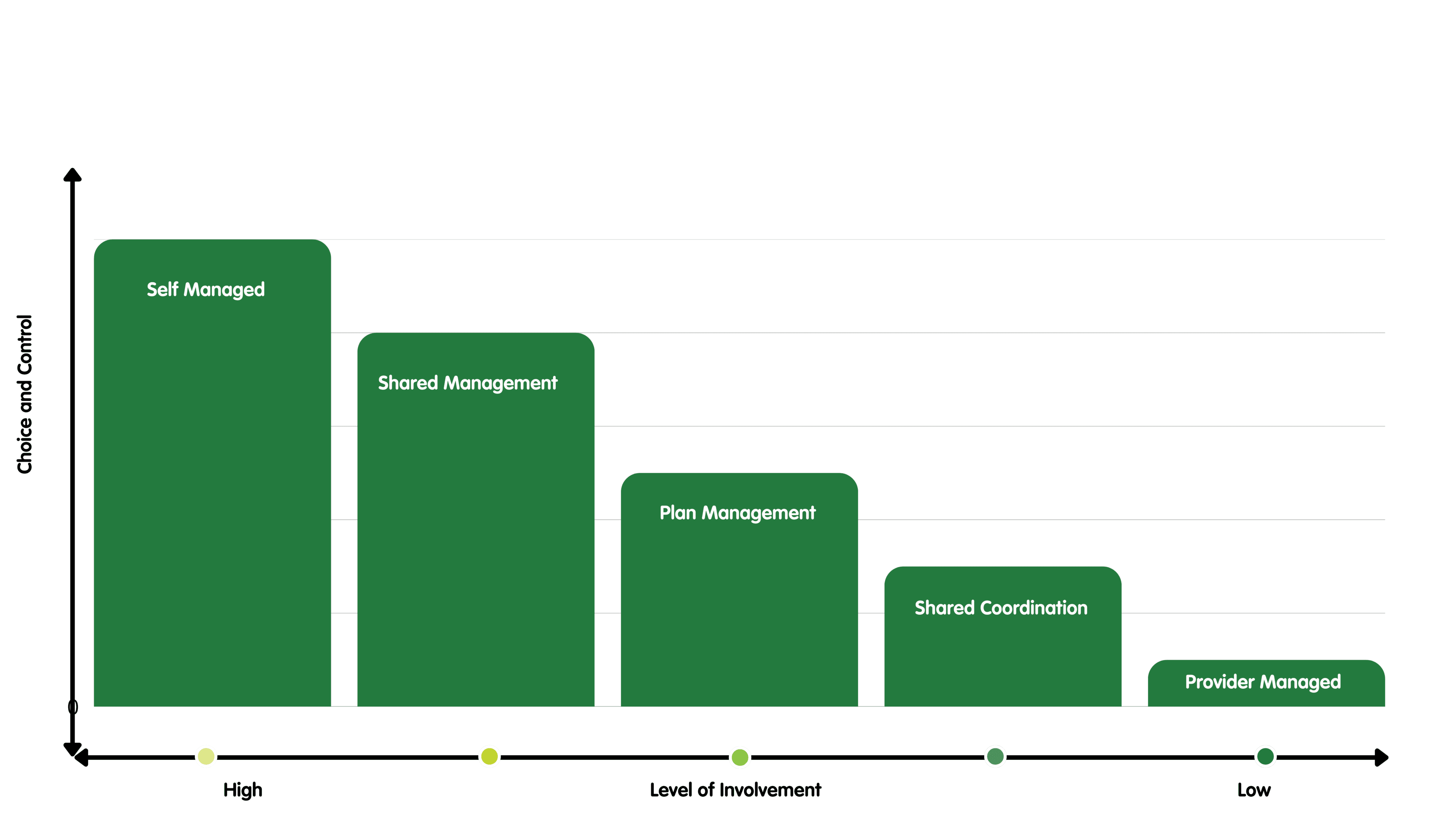Top 5 Things NDIS Professionals Need to Know About Shared Management
With maximised choice and control, and utmost flexibility, this approach stands out in a lot of ways.
As NDIS professionals, we’re always looking for ways to balance compliance, participant choice, and practical outcomes. Shared Management is one approach that offers the best of both worlds: participants stay in control of their supports, while providers handle the complex compliance and administrative requirements.
Here are the top five things you need to know about Shared Management — and how it can support your participants.
1. It’s Not Self-Management- It’s a customised partnership approach
Shared Management is often confused with self-management, but they’re different.
Self-management means participants carry all responsibility for hiring, payroll, compliance, and reporting.
Shared Management means participants choose their level of involvement, while the provider steps in to cover the areas that are complex, time-consuming, or high-risk.
This gives participants more control, without the stress of going it alone.

2. Participants Can Hire and Lead Their Own Team
One of the strongest benefits of Shared Management is flexibility in staffing. Participants can:
Recruit and hire their own workers.
Decide who supports them, when, and how.
- Find opportunities to create a custom support plan and manage their funding.
Build stronger, more personal support relationships.
Meanwhile, providers like Interchange WA manage the employment contracts, payroll, training and other complex tasks to help them succeed as an employer.
3. Providers Safeguard Compliance and Restrictive Practices
For professionals, the big reassurance is compliance. Shared Management ensures:
NDIS obligations are met.
Restrictive practices are reported timely and processess are set in place to ensure smooth and safe supports
Staff are insured, trained, and supported.
This means you can confidently refer participants knowing the risk is managed and they are guided correctly to make their plans work efficiently.
4. It Maximises NDIS Plans and Funding
Shared Management can stretch participant funding further. Providers help with:
Budget planning aligned with NDIS funding periods.
Reporting for plan reviews.
- Emergency and Disaster Management Planning
Smooth processes for claiming and record keeping.
This gives participants more flexibility in how they use their budgets to achieve their goals.
5. It’s Backed by Trusted Expertise
Shared Management isn’t new — it has a long history in WA and has been successfully running since early 1990’s. At Interchange WA, we’ve been supporting participants for over 30 years. Our advisors work alongside professionals to ensure:
Compliance is covered.
Participants feel empowered.
Families and professionals have a trusted partner to call when things get complex.
- Support staff are trained and process is set up to ensure that the Employer is successful.
Shared Management is about partnership. Participants lead the way, providers support the journey, and professionals like you can rest assured that compliance is managed while independence is protected.
Bonus Tip:
Shared Management is particularly powerful when someone is exploring independent living options such as Hosting or a Live-in Companion model.
These customised approaches allow participants to:
Choose how their supports are organised.
Direct who they live with and how daily support works.
Make the most of their NDIS funding by aligning it directly with their living goals.
It’s a flexible way to combine independence with the right level of provider oversight, ensuring both freedom and security.
We have a dedicated Shared Management Advisor to navigate you through this journey and to help your participant design a custom plan that works for them.
